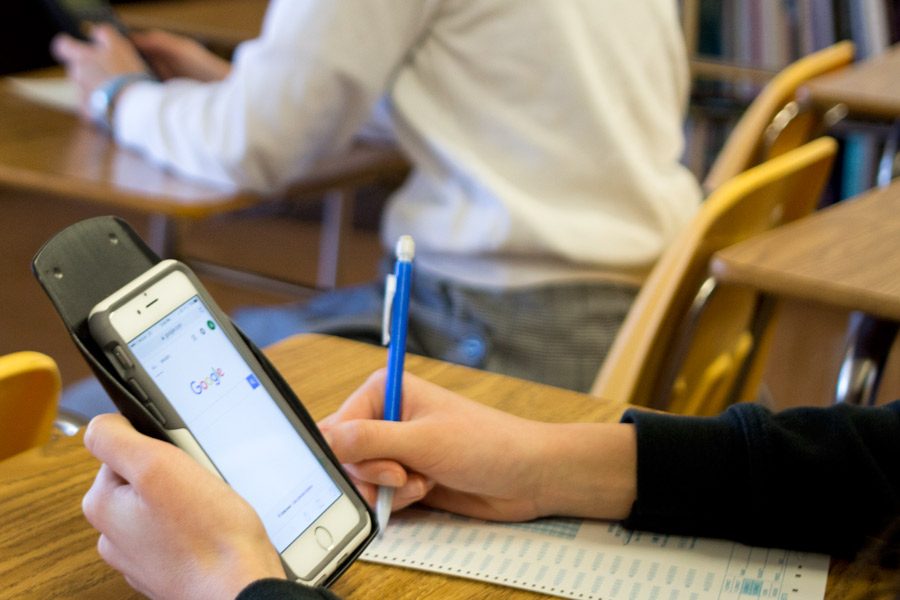Patriot Perspective: Cheating hinders academic excellence
During exams in December, multiple students were found violating the honor code by cheating. The administration has taken initiative to reduce academic dishonesty by enhancing proctor training.
“I commit to uphold and promote, by my actions and words, the values of honesty and respect for others in our John Carroll community. I will not lie, cheat, or steal, and I will work to discourage the behavior of others who do.” Barely pausing to register the Honor Code that he is reading, a student carelessly scribbles his name in the designated space. Just a few minutes later, he pulls out his phone to answer the test questions before him.
Instances like the situation above occur throughout the classrooms of JC. They occur on classwork, homework, quizzes, tests, and even exams. During the recent midterm exams, which took place from Dec. 14 to Dec. 16, a significant number of students were caught cheating.
While there were fewer than ten students caught cheating, the number was high enough to merit concern from administration. The aftermath of the examinations shows that teachers could be more proactive in catching cheating during tests, but it more importantly reflects an underlying tendency of students to take the easiest possible route to receiving a decent grade.
By signing the Honor Code both at the beginning of the year and on various assignments throughout the year, students are agreeing to uphold academic integrity under the threat of severe punishment. They therefore have, in effect, an obligation to restrain themselves from cheating.
Students also owe it to themselves and their classmates to turn in honest work. It is unfair for the students who work hard to be punished for their conscientiousness when they receive lower grades than students who cheat their way through classes. When the cheaters fail to uphold the expected moral responsibility, it reflects poorly on both the individuals involved and the school community as a whole.
Granted, no one likes to fail. No one likes to spend nights and weekends hard at work while other students have fun. However, this lackadaisical attitude toward schoolwork has created not only a cheating epidemic but a school culture that accepts cheating as a viable excuse for making the grade.
It is imperative that, as a school community, students should not only hold themselves to standards but also work to reach the academic excellence that JC strives for. The Honor Code cannot just be another fill-in-the-blank question on a test. It, as well as the subsequent grades themselves, need to actually mean something.
In order to combat this cheating culture, students need to hold themselves and their peers more accountable for their actions. The simplest course of action is to refrain from cheating individually. Leaving your phone in your locker or out of reach can help to combat the temptation to cheat.
Students should also discourage others from cheating by confronting their peers or their teachers when they see cheating taking place. One small step is to deny a friend who wants to copy the latest homework assignment.
While it’s obvious that students need to work to improve their habits of honesty, the system which allows students to cheat is already being improved upon, through additional proctor training for teachers and for that, we applaud the administration.
The decision to train teachers the proper way to proctor exams will ultimately reduce cheating on a large-scale level. Teachers becoming more proactive can further curb illicit behavior by providing more certain punishment as a result of cheating. However, it is up to the students to actively work to bring honesty back into the classrooms on a daily basis.



